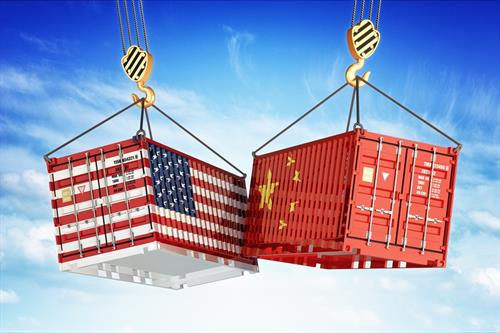Trade Wars Are Class Wars
Monday, April 26, 2021


One of the first things students of Warren Buffett learn is his strong distaste for macroeconomics. According to Mr. Buffett, macroeconomics are entirely unpredictable, and trying to anticipate them in building a portfolio is a waste of time. So why did I click the Amazon “Buy Now” button when I came across the 2021 Lionel Gelber Book Prize Winner, Trade Wars Are Class Wars? I haven’t read a book on macroeconomics in a while thanks to the long-held bias I inherited from Mr. Buffett. I guess my inner skeptic made me do it!
Trade Wars Are Class Wars examines global trade conflicts through a different lens. The authors, Matthew C. Klein, an economics commentator at Barron’s, and Michael Pettis, a professor of finance at Peking University’s Guanghua School of Management, reason that conflict between countries is a result of conflict within countries. They believe trade wars are the unintended consequences of governments serving the interests of the upper classes at the expense of workers and retirees. In other words, they are a symptom of a bigger disease – rising income inequality across the globe.
One of the core macroeconomic principles is savings = investments. Since I already violated Mr. Buffett’s counsel to avoid musing on macroeconomics, I may as well infringe on his coaching to avoid formulas. The point is that savings and investments are considered equal by economic definition. Of course, reality is often different. The authors note that in most countries savings and investments are not equal. Some countries produce more than they consume, while others produce less than they consume. These imbalances are resolved through trade. For example, a savings glut in China is alleviated by a spending excess in the United States.
Under the right circumstances, trade propels the world forward. At other times, trade disparities can leave many people worse off. This has been a concern over the last few decades. The United States’ current account – its exports minus its imports of goods and services – has been in deficit for decades. In other words, the U.S. consumes more than it produces. The prevailing belief is that American consumers are prone to over-borrowing. Perhaps that assumption confuses cause and effect. What if the underlying issue is the trade dynamic between the United States and China?
China reinvests its U.S. dollar reserves back into America through U.S. fixed income assets. This extra demand for U.S. treasuries lowers their yields. Credit often follows suit with lower interest rates, which entices some people to borrow beyond their means. In 2007, Citigroup CEO Chuck Prince said, “When the music stops, in terms of liquidity, things will be complicated. But as long as the music is playing, you’ve got to get up and dance. We’re still dancing.”
The combination of excessive overseas inflows, additional credit supply and the U.S. central bank’s ongoing effort to create a wealth effect by lowering rates, which boosts the price of financial assets like real estate, creates some notable side effects. Chief among them is increased income inequality. The lower and middle classes experience falling incomes as domestic production moves overseas, whereas the wealthy see their assets increase in value.
So, what is the prescription? Mr. Klein and Mr. Pettis suggest the first objective for America should be to shift the burden of foreign inflows from the private sector to the federal government via increased investment. Infrastructure investment would certainly move the country in the right direction in the short term. But, a longer-term solution to rebalance income inequality requires additional heavy lifting. To end trade conflicts, we need to find a way to end the struggle between classes.
For those interested in this topic, Foreign Policy, in partnership with the Munk School of Global Affairs & Public Policy at the University of Toronto, is hosting a virtual event celebrating the 2021 Lionel Gelber Book Prize winners. The event is taking place on May 5, 2021. Click here for more information.